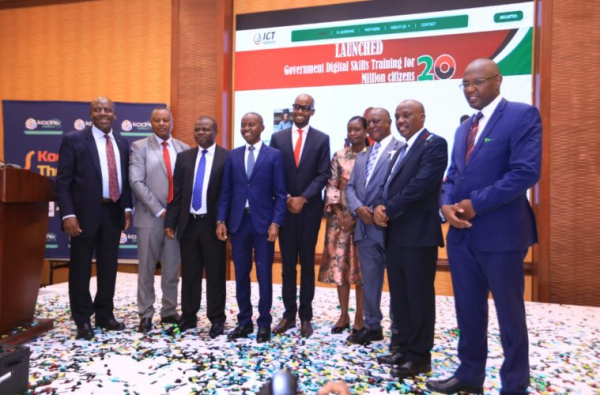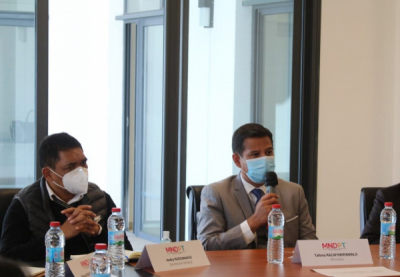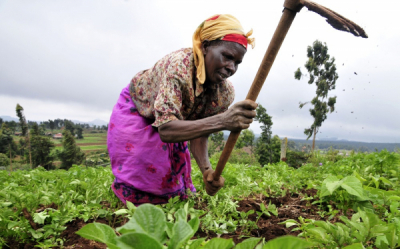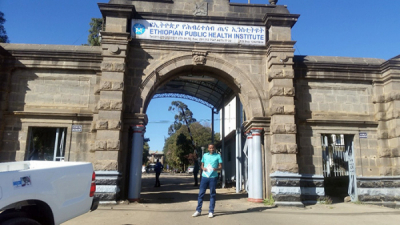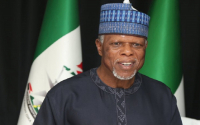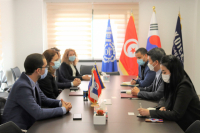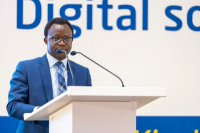
Public Management (498)
Ecommerce is booming in several African countries. So, most governments have introduced reforms and incentives to encourage the activity. To benefit from those incentives, some buyers indulge in fraudulent acts. Therefore, Morocco is introducing the tax to protect the local industry and secure more revenues.
Morocco will tax every good purchased online and shipped from abroad starting from July 1, 2022. The decision is decreed in ordinance n° 2-22-438 issued during the ministerial council carried out last Thursday, June 16. According to the decision, all the goods purchased via electronic platforms are now subjected to import duties no matter their value. Goods delivered before the law’s effective date will not be affected, the ordinance stresses.
The new ordinance amends article 190-E of decree n°2-77-862, which exempts some goods and parcels from import duty. Goods and parcels worth less than MAD2,000 (US198.65$) imported by individuals with ordinary residence in Morrocco and those worth less than MAD1,250 (about US$125) (except for alcoholic drinks and tobacco) sent to natural or legal persons domiciled in the country were included.
Article 190-E is amended because Morocco noticed that with the boom of e-commerce activity in the country, some users have developed fraudulent practices to benefit from the exemption. For instance, large goods exceeding the exemption limits are fractioned and sent to multiple persons even though they are destined for one individual or legal person.
Speaking during a press conference after the June 16 ministerial council, government spokesperson Mustapha Baitas explained that the new decisions are aimed at combating fraudulent practices. "The project aims to strengthen customs control procedures for parcels bought online and delivered from abroad,” he said.
For the spokesperson, those acts harm the Moroccan economy-local businesses particularly- and deprive the government of important resources. In 2021, he estimates, more than MAD1 billion worth of goods bypassed taxation using fraudulent schemes to benefit from the exemption provided by article 190-E. For the government official, that figure could rise to MAD2 billion this year.
Ruben Tchounyabe
Apart from internet connection, the availability of qualified human resources is the key challenge delaying digital transformation in Africa. So, Kenya is moving to prepare students for the connected world.
Last week, Kenya officially launched the first coding curricula to be taught in primary and secondary schools. The curricula were developed in partnership with Kodris Africa, an online publishing company that teaches learners how to code. The curricula include hands-on lessons that will help young people develop their problem-solving skills.
“Adding coding to the school curriculum will enhance students’ technological skills and put them on the scope in the ever-growing world of technology,” explains Kodris Africa CEO Mugumo Munene.
According to ICT Cabinet Secretary Joe Mucheru, “the world is changing and everyone is going digital and Kenya will not be left behind as the globe goes digital.” For George Kinoti, Director of Criminal Investigations, it is important to give children IT skills because nowadays, everyone uses information technology, even criminals. “Equipping our children with IT skills in schools is very important because in today’s world even the police must be well trained in computer technologies to fight criminals who are now tech-savvy. Technology helps us bust crime in real-time and stay ahead of the criminals,” he said.
The curricula were approved by the Kenya Institute of Curriculum Development (KICD) on April 19, 2022. The development of those curricula is in line with President Uhuru Kenyatta's Digital Literacy Program (launched in 2016) and the National Digital Master Plan (2022-2032), which provides for an improvement in the country’s digital skills. At the time, CEO Mugumo Munene had already indicated that it would be highly valuable for students to learn to code. “When students learn to code, they can become producers in this 21st Century digital age rather than merely consume what is created by others," he said.
Ruben Tchounyabe
Before the creation of this center, the government’s digital transformation plans used to be implemented by many actors, sometimes rendering the actions inefficient. With the center, Madagascar intends to streamline actions for more efficiency in its digital transformation plan.
Madagascar recently created a special unit for the implementation of national digital transformation policies. The unit was baptized Digital Governance Center (UGD- Unité de Gestion Digitale). On June 8, 2022, the decree creating it was approved during the Ministerial council held the same day. That decree categorized the UGD as a public industrial and commercial entity with the Presidency and the Ministry of Digital Transformation as overseeing authorities.
According to Andry Rasoanaivo (photo, left), secretary-general of the Ministry of Digital Transformation, UGD will be the government’s operational arm in the digital sector. It will implement the various digital projects (public sector digitization notably) being developed. It will particularly implement the Digital Governance and Identification Management System Project (PRODIGY) whose main goal is to have a unique digital identity for every Malagasy and create a digital civil registry accessible to every public administration by end 2022.
Overall, the digital governance center will streamline the government’s strategic and financial actions for digital transformation. It will also help efficiently manage human resources.
In 2021, Madagascar became more focused on the digitization of public administrations and companies in a bid to improve their contribution to post-pandemic recovery. The digital transformation projects are notably aimed at modernizing public administration, preventing corruption as well as boosting economic development and social/financial inclusion. The various efforts are backed by international partners.
Ruben Tchounyabe
In Kenya, poor farming habits, climate change, and poor access to information are notable factors challenging the development of the agriculture sector. The MoU is signed to develop a solution that will help partially address those challenges.
The DRSRS -Directorate of Resource Surveys & Remote Sensing- and Kenyan agritech AgrVision signed, Thursday (June 9), a memorandum of understanding (MoU) for the development of a smart crop monitoring platform. The platform will be powered by artificial intelligence and use satellite imagery.
According to DRSRS deputy-director Charles Situma the MoU was signed to develop “the right digital tools and usage of advanced data collection and analytics technologies that can help the agricultural sector and decision-makers in the country, have full visibility and data-driven decisions that enhance food security programs to achieve better sustainable results.”
For Oscar Mwai, AgrVision’s Chief Operations Officer, agriculture should be smart and sustainable. That is why the agritech is committed “to simplifying the remote sensing-based precision agriculture technology, making it universally accessible and practical, by using cutting-edge Ai/ML models and algorithms to analyze big Agri-data that is collected and provide highly-precise information about fields, crops, and forests,” he said.
Agriculture is one of the most important sectors of the Kenyan economy, contributing about 30 percent of GDP. It is also the main source of livelihood for most Kenyans. However, the sector is undermined by challenges including rising temperatures, changing rainfall patterns, extreme weather events, poor farming practices, the poor quality of inputs, and farmers’ inability to access crucial information.
Therefore, Charles Situma believes that "a full transformation in the agricultural sector is needed, in which data will play a major role for better, more timely and actionable knowledge is a precursor.”
Ruben Tchounyabe
The platform aims to enhance the general public’s preparation for timely decisions in case of health crises because it is the foundation for efficient crisis management.
The Ethiopian Public Health Institute (EPHI) launched Tuesday (June 7), a digital public health emergency contact platform accessible by calling 8335. Developed by the Ministry of Innovation and Technology and the Mastercard Foundation, it provides critical health information, notably regarding Covid-19, yellow fever, cholera, Guinea worm, and monkeypox outbreaks.
“In addition to providing health information, this digital technology responds to frequently asked questions through Interactive Voice Response (IVR). This significantly reduces the time health professionals at the contact center would take to respond to inquiries. The fact that the system receives and delivers messages quickly enables the provision of information to be delivered more efficiently and simply,” explains State Minister for Information Technology Huria Ali.
According to a release from the Mastercard Foundation, the “system greatly enhances the country’s current health system.” “The platform provides and receives public health information from the COVID-19 portal and District Health Information System 2 (DHIS-2), as well as other relevant data systems,” it adds explaining that the involved parties are committed to improving the platform for timely and reliable services.
“With this new digital service, the public will be able to make more informed decisions about their health. In addition, lessons learned from this digital platform will further contribute to our digital work across various portfolios. By leveraging the power of technology, we will achieve increased efficiency and connectedness across Ethiopia,” indicates Samuel Yalew Adela, Mastercard Foundation’s country head.
Ruben Tchounyabe
The agency is created to improve the coherence of digital transformation projects ongoing in the country. The decision will help optimize resource utilization, they hope.
The Republic of Benin officially created, Wednesday (June 1), its national information technology development agency. The new agency, called ASIN -Agence des systèmes d’information et du numérique- is the result of the merger of four dedicated agencies. Those agencies are namely the digital development agency ADN, the information systems agency ASSI, the national cybersecurity agency ANSSI, and the Universal Service of Electronic Communications and Post (ABSU-CEP).
According to the government, the agencies were merged to answer optimization needs, in preparation for the operationalization of Société béninoise d’infrastructures numériques -the national digital infrastructure management firm-for improved efficiency, and for more rationality and coherence in state actions.
ASIN will pursue the actions carried out by its predecessors since its creation in 2016. It will notably implement digital projects like broadband and ultra-wideband deployment, dematerialization, cybersecurity, network extension, and the development of internet adoption in rural areas.
Placed under the dual supervision of the Ministry of Digital Affairs and Digitization and the Ministry of Economy and Finance, ASIN will be headed by André Loko (photo). Its board chairman is Finance Minister Romuald Wadagni.
Ruben Tchounyabe
With that offer, Kenya hopes to support bitcoin miners’ green transition. According to Ecofin Agency, several crypto mining firms have already contacted KenGen with power requests.
Parastatal power producer Kenya Electricity Generating Company (KenGen) invites bitcoin mines to settle operations in Kenya. According to Ecofin Agency, which revealed the information recently, the power producer thus intends to monetize its geothermal power surplus and promote green crypto mining.
“We’ll have them here because We have the space and the power is near, which helps with stability,” said Peketsa Mwangi, KenGen’s geothermal development director.
Mr. Mwangi also revealed that some bitcoin mining companies have already approached the Kenyan company. "Their power requests vary, some of them had asked to start with 20MW to be later graduated... crypto mining is very energy-intensive," he added.
According to Kenyan news outlet The Standard, KenGen hopes to install bitcoin mining farms around its main geothermal power plant near Naivasha (123 km west of Nairobi). The country is Africa’s largest geothermal energy producer. Its production potential is about 14,000 MW but its installed capacity is 863 MW. Meanwhile, crypto mining firms are under pressure due to their high carbon emissions as they require an outstanding volume of energy to run their mining computers and equipment. Last year, several mining companies were expelled from China. Some of them are still looking for countries with excess supplies of renewable energy.
With the E-customs project, authorities want to improve operational and financial efficiency, in line with the Nigerian government’s, which is to “improve services, lives, and revenues with digitalization.”
Nigeria recently launched a US$3.2 billion project that will quadruple monthly customs revenues. Dubbed the “E-customs” project, it consists of digitalizing the whole customs administration, including revenue collection. In that regard, stakeholders expect the project to help fetch US$176 billion in the next 20 years.
In the framework of the project, the Nigeria Customs Service signed, last May 30, a concession agreement with the Trade Modernization Project Limited, the project consortium formed by Africa Finance Corporation (AFC) and Huawei Technologies Limited.
With the E-customs project, financed by the AFC and implemented by Huawei, Nigerian authorities want to leverage digital tools to improve customs’ operational and financial efficiency.
“... we’re going to become a fully digitized Service. [...] The success of this project will be on the global map. We are going to hit the ground running. It’s a very beneficial project especially as it’ll garner $176 billion for the concession period. We are likely to surpass that,” said Mr. Hameed Ibrahim Ali, Comptroller General of the Nigeria Customs Service (NCS).
“To the Nigeria Customs, this is going to change the entire business process. It is going to put the Customs on the best part in terms of doing business. It would remove all arbitrariness and human mistakes … ease the cost of doing business…. assist those of us who were given the task to manage with a simpler process of managing and monitoring,” he added.
For Alhaji Saleh Ahmadu, chairman of the Trade Modernisation Project Limited, the e-customs project has several economic benefits. “As the concession period begins, we wish to assure Nigerians that the revenue target of 176 billion dollars for the Federal Government will be achieved, if not surpassed. [...] More importantly, we are excited about the real economic benefits for the country, in terms of business growth for exporters and import-dependent businesses. [...] Others are improved global supply chains, enhanced industrial capacity utilization, and creation of employment opportunities,’’ he indicated.
Ruben Tchounyabe
Professional insertion has become a worrisome issue in several African countries. To address this challenge in the digital era, national and international experts are moving to elaborate the most-suited strategy.
In the next four years, several international partners will support Tunisia in the creation of ICT jobs for its youth and women. On Monday, May 30, in Gammath, the Ministry of Vocational Training launched a project in that regard.
Dubbed IPTIC, the project is funded by the Korea International Cooperation Agency and implemented by the International Labour Organization’s country office in Algiers.
The project will focus on two axis in Tunis, Sousse, Sfax, Manouba, Kairouan, Zaghouan, Sidi Bouzid, Jendouba, Kasserine and Gabes. They are namely improving the capacities of government agencies dedicated to the implementation of the national employment strategy and the diagnostic study of ICT employment in each region. In Tunis, Sousse, and Sfax, the project will also develop ICT value chains.
The project is the result of an agreement signed, in December 2021, by Rania Bikhazi, Director of ILO’s country office in Algiers, and Kim Hanvit, KOICA's acting country director in Tunisia. It will capitalize on the achievements of EDJEF, a project carried out from 2018 to 2020, to promote the employability of women and the youth in Kairouan, Zaghouan, Tunis, and Manouba.
Muriel Edjo
By digitizing the entire health system, the government wants to give digital identities to every patient to improve healthcare services.
Rwanda is moving to digitize its entire health system by 2024. The project was announced by the Permanent Secretary of the Ministry of Health, Zachee Iyakaremye (photo), at the launch of the 2022 Health Research and Policy Symposium last Tuesday (May 26). According to the official, the aim of the project is to give a digital identity to every patient.
“The action plan is to have all the patient information in one place and digitalized so that we do away with paperwork completely. [...] This will also be possible by combining the national identification with the medical identification so that a patient can have one identification number which they can use to get treatment in any health facility in the country,” he explained.
In its initial stage, the project will cost about US$12 million with anticipated total costs estimated to reach US$34.3 million in the long term. The health system digitization project aligns with the country’s One Health II strategic plan (2019-2024). In Rwanda, patients visiting health centers are still required to carry physical medical logbooks although more than 400 of its 513 health facilities have computers that can help store patient data. The government initiated the digitization of the medical data at the district, regional, and referral hospitals. However, there are still thousands of paper medical logbooks awaiting digitization.
For Jean Baptiste Byiringiro, chief digital officer at the Ministry of Health, digitization of the entire health system will solve that issue and many others. He announced the upcoming arrival of equipment essential for the digitization project as well as the construction of a data cloud, the installation of required equipment, and staff preparation.
Ruben Tchounyabe
More...
The project is in line with the government’s plan to make ICT a driver of growth and socio-economic development.
Niger wants to capitalize on digital technologies to improve its farmers’ production and growth. In that regard, last Saturday (May 28), it launched a digital innovation project dubbed IDAN ( projet d’innovations digitales pour les agro-pasteurs-IDAN). The project is aimed at helping boost revenues by 10% by offering access to integrated digital solutions for 35,000 farmers and pastoralists (including 15% women and young people) in Dosso, Tahoua, and Tillabéri.
IDAN will help agro-pastoralists make informed decisions daily. It will help them for instance decide “whether or not to buy inputs, the price at which to sell their milk, hides, livestock, cereals, and vegetables as well as knowing when to migrate with their herds,” explained Paul Tholen, the Dutch ambassador to Niger.
According to the diplomat, in the framework of the project, a virtual marketplace will be created where farmers and pastoralists will offer their products. At the same time, a call center will be created allowing beneficiaries to request geo-satellite data and production tips.
IDAN is being developed by the Netherlands Development Organization (SNV), since April 1, 2021. It is funded by the Dutch embassy in Niger to the tune of about XOF3 billion (US$4.9 million). Its launch follows the validation (in March 2022) of three studies commissioned to gauge its socio-economic impact on target populations.
During the launching ceremony, Niger’s Livestock Minister Tidjani Idrissa Abdoulkadri (photo), praised the initiative that backs the government’s efforts in the improvement of residents’ living conditions and the fight against food insecurity.
Ruben Tchounyabe
In Cameroon, cybercrimes have exploded but those acts are sometimes perpetrated by local parties. Therefore, by joining the convention, authorities want to be able to track cyber criminals wherever they are.
In Cameroon, President Paul Biya signed, Monday (May 23), a decree authorizing the country’s membership in the Budapest Convention on Cybercrime. Drafted by the Council of Europe, the convention was signed in November 2001 and became enforceable on July 1, 2004. It is devoted to the fight against cybercrimes, including child pornography, copyright infringement, and hate speech. It also consecrates international cooperation in the fight against modern internet and information technology threats.
According to Cameroon’s National Agency for Information Technology and Communication (Antic), 3,105 cybercrime complaints, more than 5,000 fake social media accounts, and seven attacks on government websites were recorded in 2021. That year, the agency estimated the financial losses caused by intrusion into public and private administrations’ computer systems at XAF12.2 billion ( about US$20 million).
The membership authorization comes after the national assembly’s approval last April 27. For Minette Libom Li Likeng (photo), Minister of Posts and Telecommunications, Cameroon’s membership in the Budapest Convention will allow the country to better protect its cyberspace, with the alignment of the December 12, 2010 cybercrime prevention law. It will also contribute to the implementation of a more repressive legal framework and help law enforcement officers identify and punish cybercrimes.
Currently, in Africa, countries are taking action to protect themselves against cybercrimes and protect personal data. Many international summits have been held in that regard since January 2022. The continued mobilization of both private and public actors demonstrates the importance of the issue, particularly in a context marked by accelerated digital transformation on the continent.
Ruben Tchounyabe
Following the Covid-19 crisis, several countries accelerated their digital transformation projects and notably improved connectivity. They are also focused on improving cybersecurity and protecting personal data since their credibility will depend on their networks’ resistance to attacks and how they protect users’ data from abusive exploitation. Last January, during the cybersecurity summit in Lome, Togo, the UNECA invited African countries to collaborate for enhanced protection of their cyberspace.
In Niger, the national assembly approved Monday (May 23), the ratification of the African Union Convention on Cybersecurity and Personal Data Protection.
Their approval comes months after the government authorized the ratification during its January 13, 2022, ministerial council. This is probably why Niger is, since February 2022, on the African Union’s list of countries that have already ratified the convention.
The national assembly’s approval marks the end of the ratification process and brings to 13 the number of countries that have fully ratified the convention. Only two ratifications are still required for the convention to become effective in Africa.
According to government commissioner Youssouf Mohamed Elmouctar (photo), Niger’s membership in the cybersecurity and personal data protection convention will help the country set its cybersecurity and personal data protection objectives and guidelines. It will also help consolidate the existing framework to align it with the continental goals.
Indeed, the convention is in line with local authorities’ ambition to boost socio-economic development with digitalization. In doing so, they will need to protect personal data and secure their networks.
Following the Covid-19 crisis, several countries accelerated their digital transformation projects and notably improved connectivity. They are also focused on improving cybersecurity and protecting personal data since their credibility will depend on their networks’ resistance to attacks and how they protect users’ data from abusive exploitation. Since January 2022, many international cybersecurity summits have been organized in Africa.
Muriel Edjo
In 2018, Kenya launched a 5-year plan to improve its health offer by building new infrastructures and increasing the number of health professionals. To address the challenges still lingering, notably concerning healthcare access in remote areas, the country wants to leverage technology.
Kenya will soon roll out a nationwide telemedicine program to improve healthcare access, in remote areas particularly. In that regard, through its Communication Authority, the country set aside Ksh600 million (US$5. million) to fund the installation of telemedicine infrastructure in 20 public health institutions.
According to Joseph Sitienei, head of the Ministry of Health’s Health Service Management department, telemedicine “is the direction to go so that no part of the country feels left out in the provision of quality health services and especially to reduce the cost of seeking health care to the patients.”
In the mid-term review of Kenya Health Sector Strategic Plan 2018-2023, the Ministry of Health reported that the healthcare worker density for effective service delivery significantly improved compared to its level in 2018. In late 2020, it was over 20.6 healthcare workers (HCWs) per 10,000 population. Nevertheless, it was below the 23 HCWs per 10,000 population suggested by the WHO and Kenya’s target of 24.4 HCWs per 10,000 population.
In 2019, the country claimed it was meeting the World Health Organization (WHO)’s recommended number of healthcare institutions per 10,000 population. That year, the disclosed national density of healthcare institutions per 10,000 population was 2.2 while the WHO was recommending at least a density of two healthcare institutions per 10,000 population.
Although the national density is higher than recommendations, in fourteen counties (30% of the national territory), the density was below WHO recommendations. Specialists and reference hospitals are concentrated in major towns while rural populations mainly have access to clinics. With telemedicine, Kenya will allow its rural populations to gain easy access to specialists and reference hospitals. Currently, the program is in its pilot phase in Kenyatta and Isiolo public hospitals.
“If we cannot provide enough skilled staff in all our health facilities, we can surely take the skilled staff to the rural areas through telemedicine! It is time that we have teleconsultations and telereferrals. There is no other opportune time than now,” Dr. Joseph Sitienei explains.
Muriel Edjo



